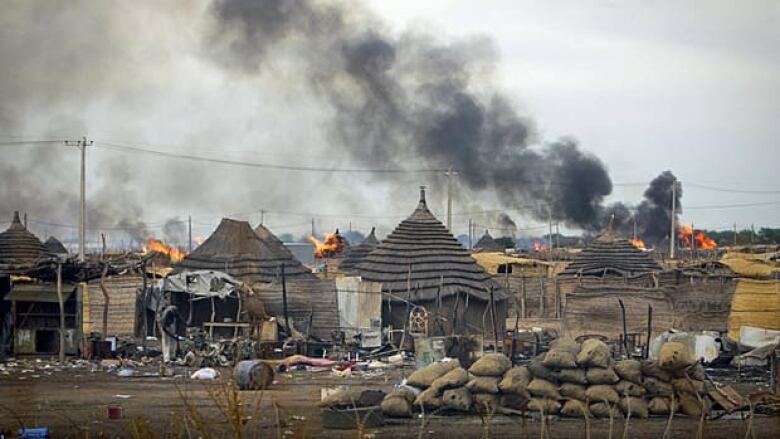'Ethnic cleansing' possible in Sudan conflict: UN

A confidential United Nations report warns that the invasion by Sudan's military of the contested north-south region of Abyei could lead to "ethnic cleansing" if the tens of thousands of residents who fled are not able to return.
The UN human rights report dated May 29 and marked "Not For Public Citation or Distribution" said the north's Khartoum government may have carried out a premeditated military plan to invade Abyei when Sudanese Armed Forces, or SAF, troops moved in May 21.
"The SAF attack and occupation of Abyei and the resultant displacement of over 30,000 Ngok Dinkas from Abyei could lead to ethnic cleansing, if conditions for the return of the displaced Ngok Dinka residents are not created," according to the report, which was obtained by The Associated Press on Friday.
Expressing its "grave concern" about the escalating violence, the UN Security Council later Friday condemned Khartoum for seizing control of Abyei, "and the resulting displacement of tens of thousands of residents."
It also called on the Sudanese Armed Forces to "ensure an immediate halt to all looting, burning and illegal resettlement" in Abyei and asked both the north and the south to withdraw their military forces from the area.
The Ngok Dinka is a black tribe that associates itself with Sudan's south. The Ngok Dinka fled Abyei when northern troops and ethnic Misseriya Arab cattle herders aligned with the north moved in and looted homes. The UN report estimated that between 15 and 20 per cent of the homes in Abyei were burned in what it called "deliberate destruction" and a violation of international humanitarian law.
"By destroying their homes, looting their properties and inspiring fear and terror, over 30,000 Ngok Dinkas have been forcefully displaced from their ancestral homes, leaving the Abyei area now more or less homogeneously occupied by the Misseriya," it said.
Ethnic cleansing, the report said, is a purposeful policy designed by one ethnic or religious group to remove by violent and terror-inspiring means the civilian population of another ethnic or religious group from certain geographic areas.
The report said that the likelihood that all the Ngok Dinka residents can return to Abyei "is limited," given the massive destruction of civilian property and the occupation of Abyei by northern forces.
North and south Sudan fought a more than two-decade civil war that ended with a 2005 peace agreement that also gave the south the right to vote for independence. That vote passed overwhelmingly and Southern Sudan is poised to become the world's newest nation in July.
But tensions over Abyei a fertile land near major oil fields has raised fears of conflict only weeks before the south secedes.
The north's invasion of Abyei was precipitated by a May 19 attack on northern and UN troops by southern soldiers. The UN report said two northern soldiers were killed in that attack, which it called a trigger for the invasion but one that appeared to be a "deliberate plan" by the north "as evidenced by the SAF troop buildup in the area before the attack," the report said.
The report also called the southern shelling of UN peacekeepers a violation of international humanitarian law.












_(720p).jpg)


 OFFICIAL HD MUSIC VIDEO.jpg)
.jpg)



























































































